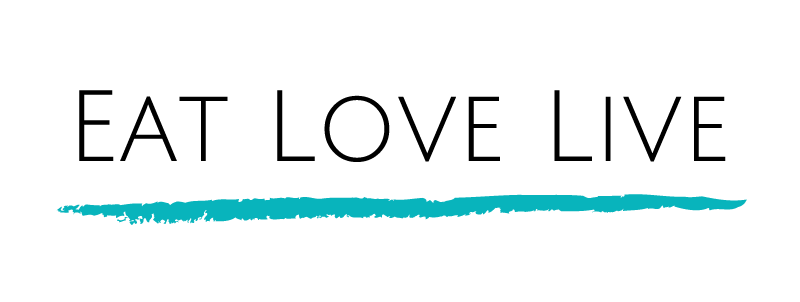Whether you celebrate at this time of year or not, there is a general air of wrapping up the year in December. From office parties and time off work to catching up with family and friends, for many reasons December can be a distress filled time with possible land mines of expectations and challenging meals.
Our Clinical Director Jo Money understands that there may be urges to use one's eating disorder or disordered eating as a way to cope during this time. To assist, she's written a blog tackling everything from managing diet talk and eating at functions to self care ideas and planning ahead this festive season.
Self Care
Your wellbeing and safety are most important. It is ok to say no to situations and requests that make you uncomfortable and may be possibly triggering.
This can be hard, and if you can, make a plan with your support team about how to look after yourself during the holiday time and put in place boundaries as needed.
This may include mundane self-care like sticking to medications, appointments, a regular schedule at home, staying in contact with people, planning, and journaling. And it may include some more nourishing activities to help manage anxiety like Netflix, meditation, mindfulness/ home yoga practice, hot/ cold shower etc.
Managing Diet Talk
The change to summer, more socializing and celebration meals can be a time when people's anxieties about food and body are apparent even if they don’t have an eating disorder or are aware of their own issues; that’s diet culture for you!
You may observe more comments focused on bodies, dieting, self-deprecation, food, over-indulging and shame. People often feel so overwhelmed about their own bodies and have a fear of "losing control" that they are not even aware that their comments have a negative impact or may be triggering for other people.
Sometimes these comments can be more overt and direct.
The first thing to try and do is ignore the diet talk. This may not be the easiest.
Try to engage in a different conversation with someone else nearby.
Change the subject. Have a few possible questions ready to change the topic if it turns to food and bodies.
- 'What is your favorite thing about the holidays ?'
- 'what are you feeling grateful about today ?'
- 'what was the most surprising gift you have ever received?'
If you feel able you may like to insert some boundaries.
- ‘I find it triggering to talk about food and body size, can we please change the topic.
- 'This conversation isn't helpful.’
- 'Lets keep this away from little people's ears.'
- 'We are so lucky to have this time together, let us just enjoy the meal we are sharing. '
- “Can we talk about something else?”
- “I’m not interested in talking about diets”
- “Those comments make me uncomfortable”
- “Thank you, however, I would rather compliments not relate to my body size or shape”
It is ok that this may feel too difficult to say. It is not your job to convince others around you to change their relationship with food and body. It is also ok for you to insert the boundaries you need to feel safe.
It is ok to remove yourself from the situation. Walk away. Excuse yourself to go to the bathroom or help clean up in the kitchen or go and get some fresh air.
On different days and different circumstances you may feel that different approaches may be helpful.
Eating at Functions:
Christmas Eve, Christmas Day and Boxing Day are all just another day. Aim to eat on these days as you would any other day – sticking to your meal plan if that is a tool you have been using with your dietitian.
If you usually have a sandwich for lunch and a hot meal at dinner – then swap them over and have a hot Christmas lunch and a sandwich at dinner.
Remember to go back to your plan and focus on having the correct serves of each food group on the plate.
It may be helpful to serve up your plate at the beginning of your meal with appropriate serving sizes - in place of picking at different dishes. This way you will know that you have had enough, not too much, not too little.
If picking at leftovers triggers feelings of being out of control, or can trigger a binge, then ask if the food can be served from a separate table or bench so it isn’t in the middle of the table while you eat. If this isn’t possible, try and position yourself at the table in a way to prevent this behavior, moving your chair back, sitting with a trusted friend or family member, and putting your serviette on your plate to signal that you are done.
It is normal on some days to eat more and some days eat less. Christmas time is a time when there may be days you eat more – there is no need to compensate, trust your body to look after itself.
There will be different foods around such as cakes, biscuits and puddings, try and include them as part of your meals and snacks. If you are not sure how, then make a plan with your dietitian prior to Christmas about how these may fit into your current eating routine. And if you are not up to this stage in your healing and which to bring your own safe food - that is 100% ok too!
If you are feeling anxious, talk to your friends/ support person/ family about this and ask for some extra support. Perhaps discuss this with them the week or day before how you plan on coping with these challenging meals and what they can do to support you.
Have a few distractions or nourishing activities planned for each day that can help to relieve anxiety and nurture you.
If one meal or day of the festive season doesn’t go to plan that is ok - move on and try again the next meal/ day. Remember that this is when ‘all or nothing’ thinking can creep in.
When you are feeling you have the capacity it may be helpful to reflect on what happened and try to learn from this. What could you do differently next time?
Planning Ahead
Often on holidays we get the free time we crave and dream about the rest of the year – but for people who struggle to relax and sit still, this can be very difficult to manage.
The other thing that can often happen when there is time off from work and study is boredom!
If we aren’t occupied it can leave room for the negative thoughts to creep in – and this often leads to ruminating on these thoughts – and them growing overwhelming and out of proportion!
The most important thing to enjoying holidays is to plan ahead. Make a schedule of your mealtimes and food choices (if this is helpful) as well as the activities you plan to do in-between each meal and snack.
You don’t have to perfectly stick to the plan but it does mean you have an idea of what to do and that you have a plan to go to if you get stuck.
If this level of planning feels like too much you may plan distractions or activities to do at the times you feel most distressed - such as right after meals.
Maybe create a list of the things you would like to do in your time off - this may be a mixture of practical and enjoyable things. Nothing is too small to add to a list and it can be very satisfying to tick it off.

